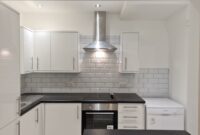Finding a reputable kitchen installer in Munich, Germany is crucial for a successful kitchen renovation. The city boasts a vibrant design scene and a range of installers, from large firms offering comprehensive services to smaller, independent businesses with specialized expertise. Choosing the right installer involves careful consideration of factors like licensing, insurance, experience, and client reviews. This guide navigates the process, offering tips and resources to help you find the perfect partner for your dream kitchen.
From researching potential installers using online directories and recommendations to meticulously checking certifications and references, the journey to finding a reliable professional requires a strategic approach. Understanding the nuances of contracts, project management, and design considerations is equally important to ensure a smooth and satisfying renovation experience. This comprehensive guide will equip you with the knowledge and tools to make informed decisions every step of the way.
Understanding Reputable Kitchen Installers in Munich
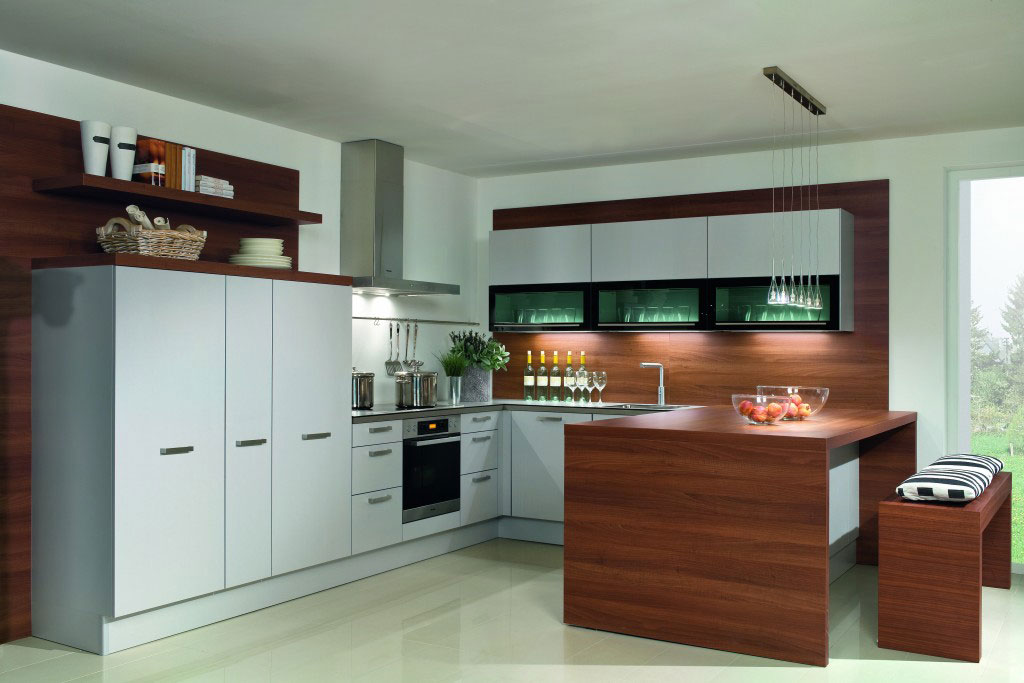
Source: co.uk
Finding the right kitchen installer in Munich can significantly impact your renovation project. A reputable installer ensures quality workmanship, timely completion, and a stress-free experience. This section will guide you through identifying key characteristics, comparing different service providers, and understanding the importance of legal compliance in choosing your installer.
Key Characteristics of Reputable Kitchen Installers
Three key characteristics define a reputable kitchen installer in Munich: proven experience, excellent customer reviews, and transparent pricing. A long-standing presence in the Munich market often indicates a reliable company with established processes and a skilled workforce. Positive customer testimonials on platforms like Google Reviews or specialized home improvement websites are valuable indicators of customer satisfaction and the quality of the work performed.
Finally, a clear and detailed breakdown of costs, including materials and labor, ensures transparency and prevents unexpected expenses during the project.
Large Firms vs. Smaller, Independent Installers
Large kitchen installation firms in Munich typically offer a wide range of services, from design and planning to installation and after-sales service. They often have a large team of specialists and access to a broader selection of materials. However, this can sometimes come at a higher price point and may involve less personalized attention. Smaller, independent installers may offer a more personalized and hands-on approach, with the owner often directly involved in the project.
While they might have a smaller selection of materials, they often demonstrate greater flexibility and responsiveness to client needs. The choice depends on your individual preferences and project requirements. For example, a large firm might be ideal for a complex, high-end kitchen renovation, whereas a smaller installer could be better suited for a smaller-scale project requiring close collaboration.
Licensing and Insurance for Kitchen Installers in Germany
Licensing and insurance are crucial aspects to consider when selecting a kitchen installer in Germany. While specific licensing requirements can vary depending on the type of work performed, reputable installers will typically possess the necessary qualifications and certifications to legally operate. Comprehensive liability insurance protects both the installer and the client from potential financial losses due to accidents, damage, or errors during the installation process.
Checking for proof of both licensing and insurance is essential to ensure you are working with a legitimate and responsible professional. Failure to verify these aspects can leave you vulnerable to financial and legal risks.
Obtaining Quotes from Multiple Installers
The process of obtaining quotes typically involves contacting several installers, providing them with detailed information about your project—including drawings, desired materials, and your budget. It’s important to request detailed quotes that clearly Artikel all costs, including materials, labor, and any additional fees. Schedule in-person consultations to discuss your project, ask questions, and assess the installer’s professionalism and understanding of your needs.
Compare the quotes carefully, considering not only the price but also the quality of materials, the proposed timeline, and the overall reputation of the installer. Remember to compare “apples to apples”—ensure all quotes include the same scope of work before making a decision.
Finding and Vetting Potential Installers
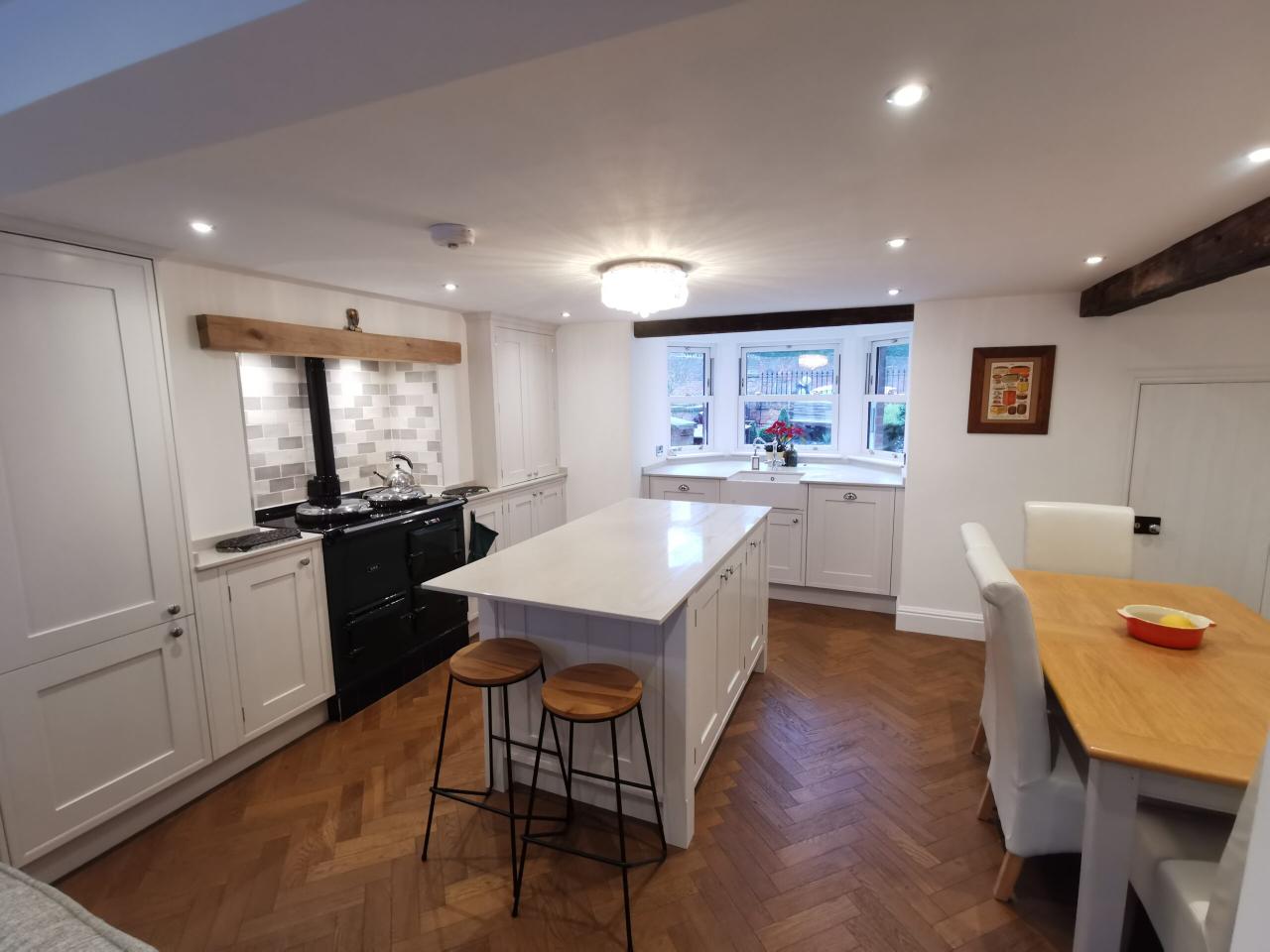
Source: co.uk
Finding the right kitchen installer in Munich requires diligent research and careful evaluation. The process involves identifying potential candidates, thoroughly assessing their qualifications, and comparing their offerings to make an informed decision. This section will guide you through the steps to ensure you find a reliable and skilled installer for your kitchen renovation project.
Resources for Finding Kitchen Installers in Munich
Several avenues exist for discovering potential kitchen installers in Munich. Starting your search online is highly recommended. Websites like Google Maps, Yelp, and local Munich-based online directories often list businesses with customer reviews and contact information. Furthermore, checking online forums and community groups specific to Munich might reveal recommendations from residents who have recently undergone kitchen renovations.
Don’t underestimate the power of word-of-mouth; asking friends, family, or neighbors for recommendations can yield valuable insights and personal experiences.
Evaluating Potential Installers: A Checklist
Before contacting installers, creating a checklist for evaluation will streamline the selection process. This checklist should include criteria like online reviews, professional certifications, and years of experience. Positive online reviews from multiple sources indicate a consistent level of customer satisfaction. Look for certifications relevant to kitchen installation and German building codes. Extensive experience suggests a high level of expertise and problem-solving skills.
A thorough evaluation will save time and potential headaches later in the process.
Questions to Ask Potential Installers, Finding a reputable kitchen installer in Munich, Germany
Asking specific questions during consultations helps assess an installer’s expertise and professionalism. Inquiring about their experience with specific kitchen brands or materials demonstrates a focus on detail. Clarifying their project management approach, including timelines and communication strategies, will ensure smooth collaboration. Understanding their warranty policies and insurance coverage safeguards your investment. Asking about their approach to waste disposal and adherence to environmental regulations showcases a commitment to responsible practices.
Finally, obtaining detailed cost breakdowns and payment schedules helps avoid unexpected expenses.
Comparative Table of Potential Installers
After gathering information from multiple consultations, organizing the data into a comparative table facilitates informed decision-making. This table should include key aspects for comparison.
| Installer Name | Experience (Years) | Price Range (€) | Certifications |
|---|---|---|---|
| Küchenbau Müller | 15 | 20,000 – 35,000 | Meisterbrief (Master Craftsman Certificate) |
| Schreinerei Schmidt | 8 | 18,000 – 28,000 | None specified |
| Küchenstudio Mayer | 20 | 25,000 – 40,000 | TÜV Certification |
Assessing Installer Qualifications and Experience: Finding A Reputable Kitchen Installer In Munich, Germany
Choosing a kitchen installer in Munich requires careful consideration of their qualifications and experience. A high-quality installation is crucial for both the functionality and longevity of your new kitchen, especially for a high-end renovation. Therefore, thoroughly vetting potential installers is essential to avoid costly mistakes and ensure a successful project.Professional certifications and affiliations significantly impact an installer’s credibility.
In Germany, various organizations offer certifications related to carpentry, cabinetry, and interior design, which are relevant to kitchen installation. While a specific “kitchen installer” certification might not be universally standardized, affiliations with reputable industry associations demonstrate a commitment to professional standards and ongoing training. These affiliations often involve adherence to codes of conduct and access to professional development opportunities, ultimately benefiting the client.
Professional Certifications and Affiliations
Finding installers with relevant certifications is crucial. Look for evidence of training and experience in areas like carpentry, cabinetry installation, and potentially even specialized certifications in kitchen design or appliance integration. Membership in organizations like the Handwerkskammer München (Munich Chamber of Crafts) can indicate adherence to high professional standards. Checking for certifications from recognized training institutions adds another layer of verification.
For example, a certification in “Küchenmontage” (kitchen assembly) from a reputable vocational school would be a positive indicator.
Portfolio Comparison of Three Installers
Let’s hypothetically compare the portfolios of three Munich-based kitchen installers:Installer A: This installer showcases a portfolio of predominantly modern, minimalist kitchens. Their work demonstrates precision in cabinetry and clean lines, but lacks diversity in styles. They excel in using high-end materials, but may lack experience with more traditional or eclectic designs.Installer B: Installer B’s portfolio includes a wider range of kitchen styles, from rustic to contemporary.
Their work demonstrates a good understanding of different design aesthetics and material applications. However, some projects show inconsistencies in finish quality, suggesting potential variability in workmanship.Installer C: Installer C boasts a portfolio featuring exclusively high-end, bespoke kitchen installations. Their work is characterized by exceptional craftsmanship, attention to detail, and the use of premium materials. However, their portfolio is smaller than the others, indicating potentially limited experience with a wider range of projects.
Ideal Qualifications and Experience for a High-End Kitchen Renovation
The ideal installer for a high-end kitchen renovation in Munich should possess a combination of technical expertise, design sensibility, and proven experience with similar projects. This includes:* Extensive experience (at least 10 years) specializing in high-end kitchen installations.
- Relevant certifications from recognized German vocational schools or industry associations.
- Proven track record demonstrated by a portfolio of completed projects showcasing exceptional craftsmanship and attention to detail.
- Strong communication skills in German and ideally English to facilitate clear and effective communication throughout the project.
- Familiarity with high-end materials and appliances, including their installation requirements.
- Proficiency in project management, including scheduling, budgeting, and coordination with other contractors.
Checking References and Verifying Previous Work
Checking references is paramount. Request contact information for at least three previous clients who have undertaken similar high-end kitchen renovations. Contact these clients directly to discuss their experiences with the installer, inquiring about aspects such as project timelines, communication, quality of work, and problem resolution. Additionally, if possible, visit the completed projects in person to assess the quality of the workmanship firsthand.
This allows for a visual inspection and validation of the installer’s claims.
Contractual Agreements and Project Management
Securing a legally sound contract and effectively managing the project timeline are crucial for a successful kitchen installation. A well-defined contract protects both the client and the installer, while a clear project timeline ensures the project progresses smoothly and within the agreed-upon timeframe. Effective project management minimizes potential disruptions and disputes.
A comprehensive contract minimizes misunderstandings and disputes. It Artikels responsibilities, payment schedules, and dispute resolution mechanisms, ensuring a transparent and legally sound agreement. Project management involves careful planning, scheduling, and monitoring to ensure the installation proceeds as planned, addressing any issues promptly and efficiently.
Essential Contractual Clauses
Several key clauses are essential for a comprehensive kitchen installation contract. These clauses protect both parties and provide a clear framework for the project. Omitting these clauses can lead to future disputes and complications.
- Detailed Scope of Work: A precise description of all included tasks, materials, and appliances. This should include specifics on demolition, installation, and any finishing work.
- Payment Schedule: A clear Artikel of payment milestones tied to project completion stages, preventing disputes over payments.
- Timeline and Completion Date: A realistic project timeline with specific start and end dates, including potential delays and their handling.
- Materials and Appliances: Specifications of all materials and appliances, including brands, models, and warranties. Clearly state who is responsible for sourcing and supplying these items.
- Warranty and Guarantees: Details on the installer’s warranty for workmanship and the warranties provided by appliance manufacturers.
- Dispute Resolution: A mechanism for resolving disagreements, such as mediation or arbitration, avoiding costly and time-consuming legal battles.
- Liability and Insurance: Confirmation that the installer carries adequate liability insurance to cover potential damages or injuries.
Sample Project Timeline
A realistic project timeline is essential for effective project management. This sample timeline provides a general framework; actual durations may vary depending on the project’s complexity and size.
| Milestone | Description | Duration | Start Date (Example) |
|---|---|---|---|
| Contract Signing | Formal agreement between client and installer. | 1 day | October 26, 2024 |
| Demolition & Prep | Removal of old kitchen and preparation of the space. | 3 days | October 27, 2024 |
| Installation of Cabinets & Countertops | Installation of base and wall cabinets, countertops. | 5 days | October 30, 2024 |
| Appliance Installation | Installation of oven, refrigerator, dishwasher, etc. | 2 days | November 4, 2024 |
| Finishing & Cleanup | Final touches, cleaning, and inspection. | 2 days | November 6, 2024 |
Potential Issues and Proactive Solutions
Several issues can arise during a kitchen installation. Addressing them proactively minimizes delays and disputes.
- Unexpected Delays: Material shortages, unforeseen structural issues, or scheduling conflicts can cause delays. The contract should include clauses addressing these scenarios, possibly including provisions for extensions or adjustments to the timeline.
- Material Damage: Damage to existing walls, floors, or appliances during demolition or installation can occur. The installer’s insurance should cover such damages. Thorough pre-installation inspections and clear communication are crucial.
- Discrepancies in Measurements: Inaccurate measurements can lead to problems with cabinet fit or appliance placement. Double-checking measurements and creating detailed plans before installation are crucial to avoid this.
- Communication Breakdown: Poor communication between the client and installer can lead to misunderstandings and delays. Regular communication and clear documentation are essential.
Detailed Budget Breakdown
A detailed budget breakdown provides transparency and helps manage costs effectively. This allows for better financial planning and prevents cost overruns.
| Item | Description | Quantity | Cost (€) |
|---|---|---|---|
| Cabinets | High-gloss white kitchen cabinets | 10 units | 5000 |
| Countertops | Quartz countertops | 1 | 3000 |
| Appliances | Oven, refrigerator, dishwasher | 3 | 4000 |
| Installation Labor | Installer’s labor costs | 1 | 3000 |
| Plumbing & Electrical | Necessary plumbing and electrical work | 1 | 1000 |
| Total | 16000 |
Visual Representations and Design Considerations
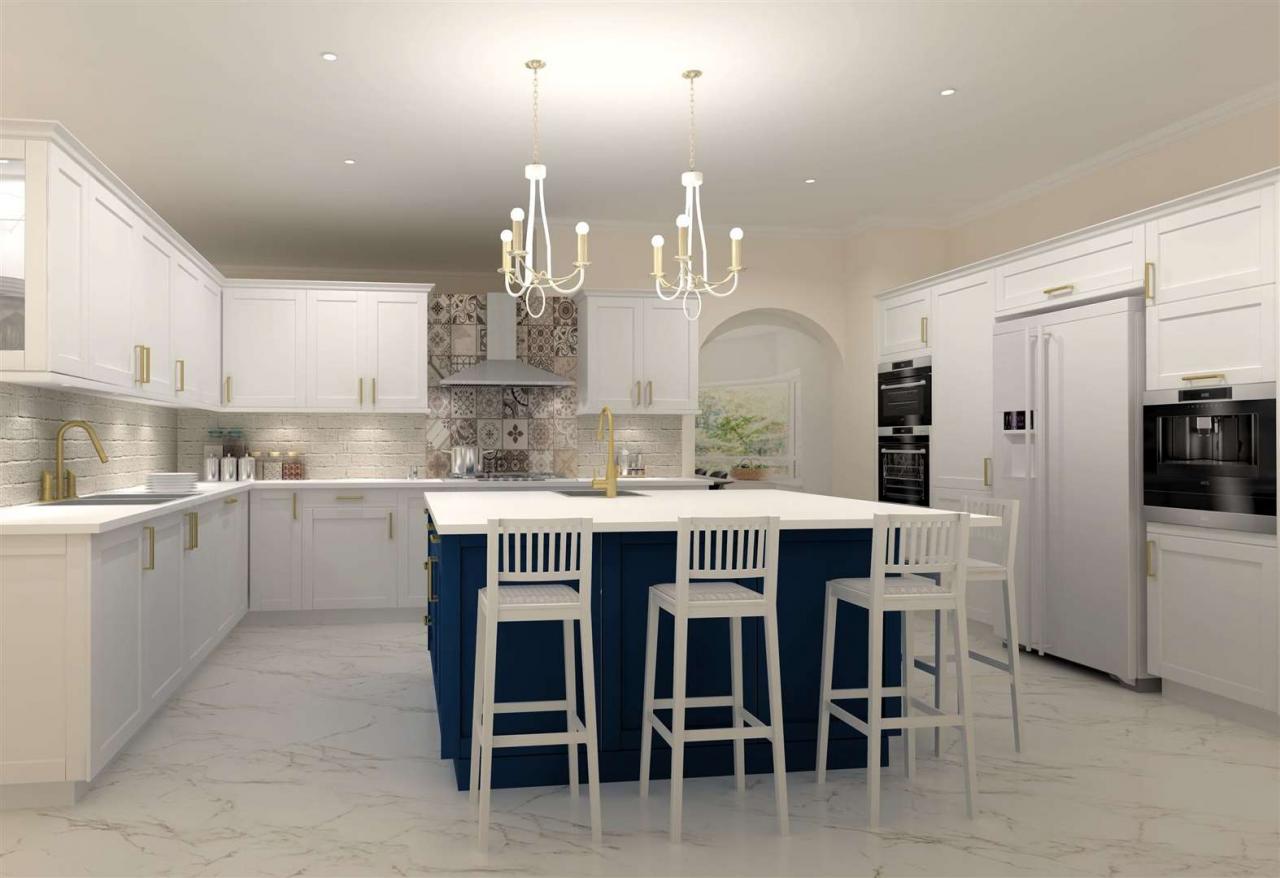
Source: co.uk
Choosing a kitchen design and selecting the appropriate cabinets and appliances is a crucial step in your Munich kitchen renovation. A well-planned design maximizes space, enhances functionality, and creates a visually appealing space that reflects your personal style. Careful consideration of both aesthetics and practicality is essential for a truly successful outcome.Selecting kitchen cabinets and appliances requires a balanced approach.
Begin by defining your needs and preferences. Consider your cooking style, storage requirements, and the overall aesthetic you wish to achieve. Browse kitchen design magazines, websites, and showrooms to gather inspiration and identify styles that resonate with you. Then, work closely with your installer to discuss your choices, ensuring they align with the available space and budget.
Prioritize functionality, choosing appliances that suit your lifestyle and cabinets that offer ample storage. Remember to consider ergonomics; cabinets and appliances should be easily accessible and positioned for optimal workflow.
Modern Minimalist Kitchen Design for a Munich Apartment
A modern minimalist kitchen, ideal for a Munich apartment, emphasizes clean lines, functionality, and a neutral color palette. Imagine a kitchen with sleek, handleless white or light grey cabinets made of high-quality lacquered MDF. These cabinets would maximize storage space with integrated appliances and clever internal organization systems. The countertops could be crafted from light grey quartz, providing a durable and easy-to-maintain surface.
A backsplash of large, rectangular, matte white tiles would complement the minimalist aesthetic. The flooring could be light oak engineered wood, adding warmth and visual contrast to the cool tones of the cabinets and countertops. Integrated lighting, recessed into the ceiling and beneath the cabinets, would provide ample illumination without cluttering the space. Stainless steel appliances would blend seamlessly into the design, maintaining a sense of understated elegance.
A single, large island, serving as both a preparation area and a breakfast bar, could complete the design, creating a functional and stylish heart of the apartment.
Impact of Countertop Materials on Kitchen Aesthetics and Functionality
Different countertop materials significantly impact both the aesthetic and functional aspects of a kitchen. Granite, for example, offers a luxurious and timeless look with a wide range of colors and patterns. Its durability makes it highly resistant to scratches and heat, though it requires regular sealing. Quartz, a manufactured stone, offers similar durability with a wider range of colors and patterns, often featuring a more uniform appearance than granite.
It’s non-porous, requiring less maintenance. Wood countertops, such as butcher block, bring a warm, natural aesthetic to the kitchen. However, they require more maintenance and are more susceptible to scratches and water damage. The choice depends on personal preference, budget, and the desired level of maintenance. For instance, a busy family might prefer the low-maintenance nature of quartz, while a homeowner prioritizing a rustic feel might opt for wood.
Potential Kitchen Layouts and Suitability for Various Sizes
The layout significantly impacts the functionality and flow of a kitchen. Several standard layouts cater to different spaces and needs. A galley kitchen, with cabinets on two parallel walls, is efficient for smaller spaces, optimizing space usage. An L-shaped kitchen, with cabinets forming an “L” shape, provides ample counter space and storage, suitable for medium-sized kitchens. A U-shaped kitchen, with cabinets along three walls, offers maximum storage and counter space, ideal for larger kitchens.
The best layout depends on the available space and the homeowner’s needs and preferences. For example, a small Munich apartment might benefit from a galley kitchen, while a larger family home might suit a U-shaped layout to accommodate multiple cooks.
Last Recap
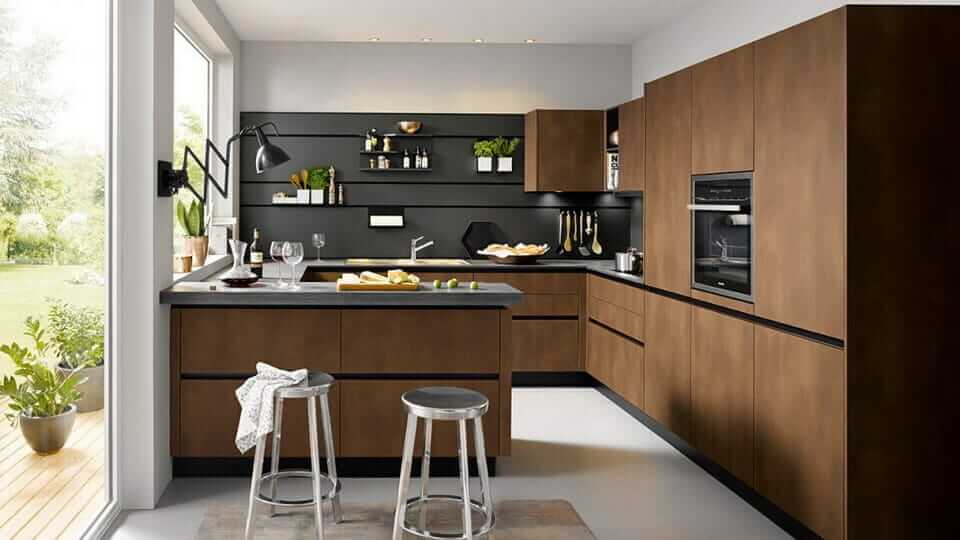
Source: uk.com
Renovating a kitchen is a significant undertaking, and selecting the right installer is paramount to a successful outcome. By carefully vetting potential installers, understanding the importance of contracts and project management, and thoughtfully considering design elements, you can transform your kitchen into a functional and aesthetically pleasing space. Remember, taking the time to research and plan will pay off in the long run, resulting in a kitchen you’ll love for years to come.
So, embark on your Munich kitchen renovation with confidence, armed with the knowledge and resources to make the best choices.
User Queries
What are the typical payment terms for kitchen installers in Munich?
Payment terms vary, but often involve a deposit upfront, progress payments at key milestones (e.g., cabinetry delivery, installation completion), and a final payment upon project completion and client satisfaction. Always clarify payment schedules and methods in the contract.
How long does a typical kitchen installation take in Munich?
The duration depends on the project’s complexity and size. A simple renovation might take a few weeks, while a more extensive project could take several months. Discuss a realistic timeline with your chosen installer and include it in the contract.
What happens if there are unforeseen issues during the installation?
Your contract should Artikel procedures for handling unforeseen issues. Reputable installers will communicate promptly, offer solutions, and adjust the timeline or budget as needed, ensuring transparency throughout the process.
Can I get insurance to cover potential damages during the installation?
Yes, it’s advisable to check if your homeowner’s insurance covers potential damages during renovations. You might also discuss additional insurance options with the installer or a separate insurance provider for extra protection.
What is the best time of year to renovate a kitchen in Munich?
Avoid peak seasons (spring and summer) if possible, as demand is higher and prices might be inflated. Autumn and winter can offer more favorable scheduling and potentially better pricing.



